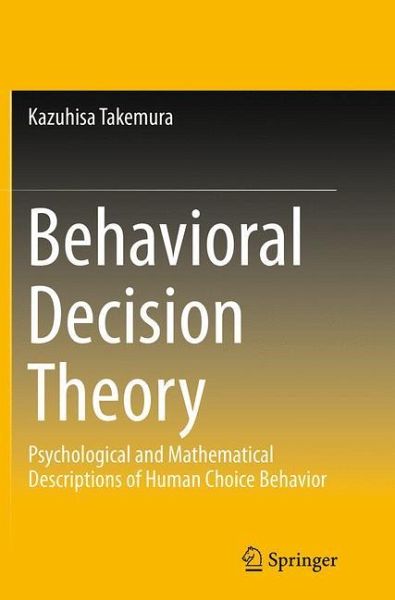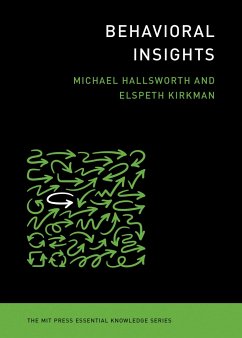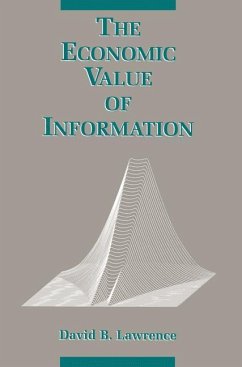
Behavioral Decision Theory
Psychological and Mathematical Descriptions of Human Choice Behavior
Versandkostenfrei!
Versandfertig in 6-10 Tagen
76,99 €
inkl. MwSt.
Weitere Ausgaben:

PAYBACK Punkte
38 °P sammeln!
This book provides an overview of behavioral decision theory and related research findings. In brief, behavioral decision theory is a general term for descriptive theories to explain the psychological knowledge related to decision-making behavior. It is called a theory, but actually it is a combination of various psychological theories, for which no axiomatic systems, such as the utility theory widely used in economics, have been established; it is often limited to qualitative knowledge. However, as suggested in the studies of H. A. Simon, who won the Nobel Prize for Economics in 1978, and D. ...
This book provides an overview of behavioral decision theory and related research findings. In brief, behavioral decision theory is a general term for descriptive theories to explain the psychological knowledge related to decision-making behavior. It is called a theory, but actually it is a combination of various psychological theories, for which no axiomatic systems, such as the utility theory widely used in economics, have been established; it is often limited to qualitative knowledge. However, as suggested in the studies of H. A. Simon, who won the Nobel Prize for Economics in 1978, and D. Kahneman, who won the prize in 2002, the psychological methodology and knowledge of behavioral decision theory have been applied widely in such fields as economics, business administration, and engineering, and are expected to become more useful in the future. This book explains various behavioral decision theories related to decision-making processes. Numerous models have been proposedto explain the psychological processes related to such a selection of decision strategies, and this book also introduces some new models that are useful to explain decision-making processes. The book concludes with speculation about the future of modern behavioral decision theories while referring to their relation to fields associated with neuroscience, such as neuroeconomics, that have been developed in recent years. In addition, each chapter includes a bibliography that can be referred to when studying more details related to behavioral decision theory. Reading this book requires no advanced expertise; nonetheless, an introductory knowledge of psychology, business administration, and economics, and approximately a high school graduate's level of mathematics should facilitate the reader's comprehension of the content.












